25 min to read
Do you want to make your business more visible in local searches? Are you determined to climb up the rankings and get noticed in your area? Local SEO can be an extremely powerful tool when it comes to getting increased visibility, traffic, leads, and customers. However, achieving good results requires a well-thought-out strategy and dedication to the task. In this blog post, we’ll discuss 6 vital steps that will help you achieve your local SEO goals as quickly as possible. So start getting prepared and get ready to see some exciting changes in no time!

Track Your Rankings
Keeping a close eye on your rankings is crucial to understanding whether your local SEO efforts are paying off. There are numerous tools available online, such as Google's Search Console or specialized local SEO platforms, that allow you to track your website's position in the search results for specific keywords. By regularly using a rank tracker, you can monitor your progress, identify areas that need improvement, and adjust your strategy accordingly. This way, you'll always know where you stand and how to get ahead.
Your rank tracking should not be limited to your website alone. Make sure to also track your local business listings on popular directories, such as Google My Business, Yelp, or Bing Places for Business. These platforms can significantly impact your local SEO performance and provide valuable insights into how customers are finding and engaging with your business.
Keyword Research for Local Success
Success in local SEO is closely tied to effective keyword research. Understanding the terms that your local audience uses when they search for services or products similar to yours is a cornerstone for creating effective content and optimizing your online presence.
Start by identifying your primary keywords - these are the terms directly related to your business, products, or services. Next, add a local element, usually the name of your city or region, to these keywords to create long-tail, location-specific keywords.
Tools like Google Keyword Planner or SEMrush can assist in finding keywords with high search volumes in your locality. Don't forget to consider semantic search and voice search trends as well, as these continue to grow in popularity. Also, make efforts to understand the intent behind the keywords. Do people want to buy something, or are they just seeking for information?
By including these locally focused keywords in your website content, meta tags, headings, and business listings, you can help improve your visibility in local search results, leading to more traffic and potential customers.
Localized Content Creation
Creating localized content is another vital step in achieving your local SEO goals. This involves developing content that resonates with your local audience and reflects local experiences, culture, or events. Incorporating local news, stories, or trends into your content can make your business more relatable and engaging to the local community.
Your localized content should ideally include your location-specific keywords. However, the keyword inclusion should be natural and meaningful. Overstuffing your content with keywords can lead to a poor user experience and may even harm your SEO efforts.
Include geographical-specific information in your blog posts, articles, or web pages. For instance, if your business is a restaurant in New York, you could write about the best local ingredients you use or post articles about local food festivals.
Also, consider other forms of content such as images or videos. If you're using images, make sure they are tagged with local keywords and have a geolocation. For videos, consider creating local guides or providing insights into local events or issues.
Through localized content, you're not only improving your local SEO but also building a strong relationship with your local community, which can result in more loyal customers and increased business reputation.
Online Reviews and Reputation Management
Managing online reviews and maintaining a positive reputation is a crucial aspect of local SEO. These reviews are visible to anyone searching for your business and can significantly influence their decision to choose your services or products. As a result, a strong presence on review platforms such as Google My Business, Yelp, Facebook, etc., is essential.
Encourage your customers to leave reviews about their experiences. Positive customer feedback can boost your business's credibility and increase its visibility in local search results. However, remember to handle negative reviews tactfully as well. Respond to them promptly, acknowledging any issues and outlining your plans to resolve them. This demonstrates to potential customers that you value customer feedback and are committed to providing excellent service.
In addition, regularly monitor mentions of your business online. Tools like Google Alerts or Mention can help you keep track of what's being said about your business. If you find any inaccuracies, request corrections to ensure that potential customers get the right information about your business.

Local Link Building
Link building is a critical aspect of any SEO strategy, and local SEO is no exception. Local link building involves earning backlinks from other websites in your area, which can significantly boost your visibility in local search results. A high-quality backlink profile not only enhances your website’s authority in the eyes of search engines but also helps attract more local traffic.
To begin with, list down reputable local businesses, associations, or community pages that are relevant to your business and see if there are opportunities for collaboration or sponsorship. This can lead to valuable backlinks from their website to yours. Participating in local events or charities can also result in mentions and links from local news outlets or event pages.
Another effective approach is to create high-quality, localized content that others in your area will want to link to. This could be in the form of local news updates, insightful blog posts on local issues, or valuable guides tailored to your local community.
Mobile Optimization
Mobile optimization is a critical component of local SEO. With the majority of searches now conducted on mobile devices, your website must be fully optimized for mobile usage. A mobile-optimized site provides a better user experience, which can significantly impact your search rankings and overall website traffic.
To achieve mobile optimization, ensure your website design is responsive. This means that it should adjust to fit any screen size, from a desktop monitor to a smartphone. The site should load quickly, with all elements, including images and forms, functioning correctly on mobile devices. Tools like Google's Mobile-Friendly Test can help assess how well your website performs on mobile devices.
Consider the local search habits of mobile users. Many use mobile devices to search for local information while on the go. Therefore, your contact information, such as address, phone number, and business hours, should be readily accessible. You may also want to leverage the power of Google Maps integration, allowing users to quickly locate your business.
In conclusion, local SEO is a powerful tool for businesses looking to improve their online visibility in their area. By implementing the 6 vital steps discussed above, you can significantly boost your chances of achieving your local SEO goals and gaining a competitive edge in your local market. Whether you are just starting or have been working on your local SEO strategy for some time, continuously monitoring and adjusting these steps will help ensure your business's long-term success.
The future (almost present) for Local SEO
To further enrich your strategy and keep it aligned with the latest technological advancements, we cant go around without discussions on the role of Generative AI and Machine Learning (ML) in Local SEO and how it would be highly beneficial. Here are some ideas topics to consider:
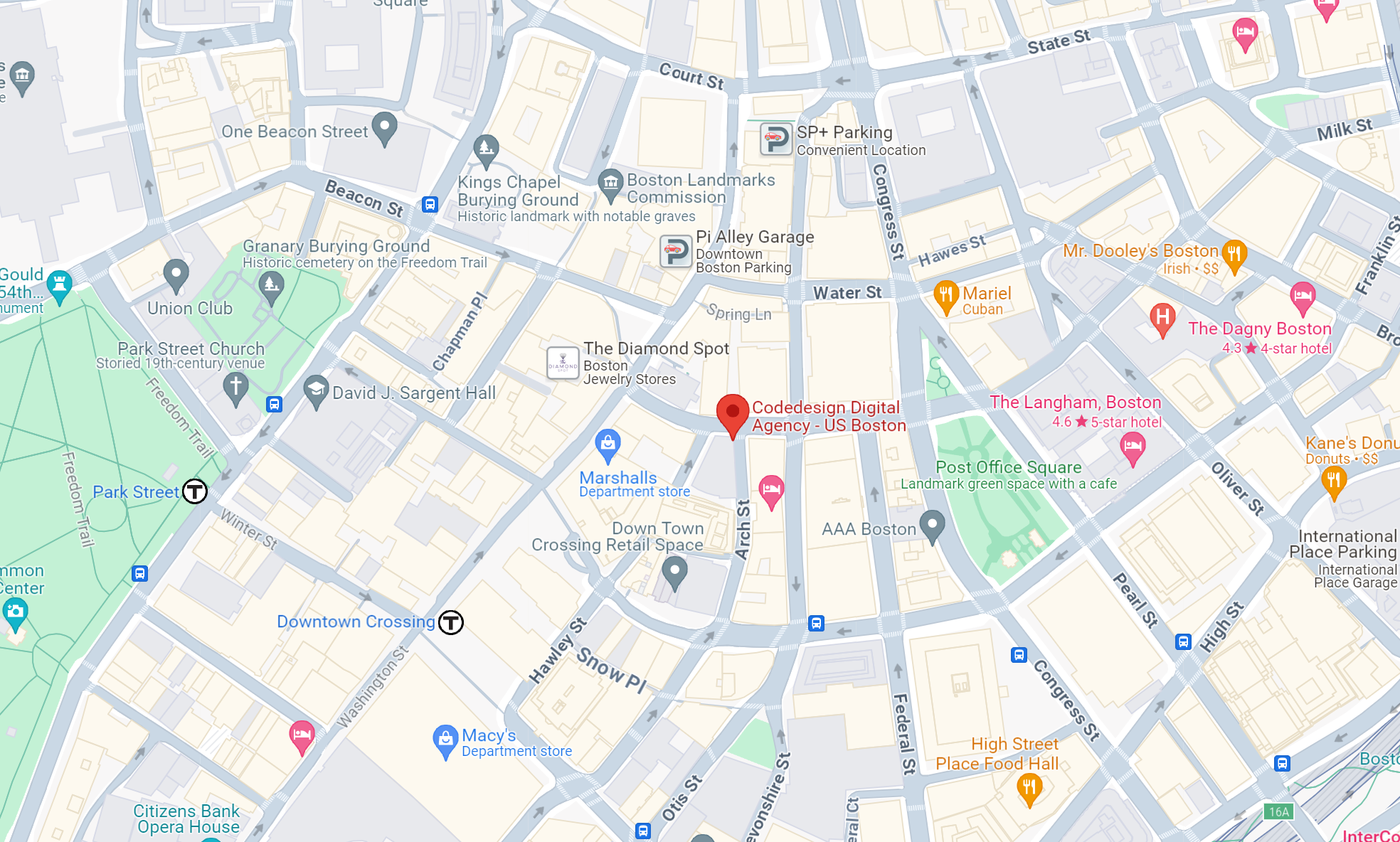
AI-Driven Personalization in Local SEO
Understanding AI-Driven Personalization
AI-driven personalization in Local SEO refers to using artificial intelligence (AI) technologies to tailor online content and user experiences based on individual user preferences, behaviors, and search patterns. This personalization can range from customizing search results to offering location-specific content and recommendations. AI systems achieve this by analyzing vast amounts of data, including user location, search history, device usage, and even time of the day.
The Mechanism Behind Personalization
AI algorithms utilize machine learning to understand and predict user preferences. They track user interactions across various digital platforms and analyze this data to create personalized user profiles. These profiles are then used to tailor content, search results, and recommendations to each user. For instance, when a user searches for "coffee shops near me," the AI can consider their past preferences, such as favoring quiet cafes or those with Wi-Fi, and adjust the search results accordingly.
Examples of AI-Driven Personalization in Action
-
Local Search Result Customization: A user in New York searching for "best Italian restaurants" might receive different search results than a user in San Francisco, even with the same search query. Beyond just geographical differences, AI can further tailor these results based on the user's past dining experiences, review interactions, and even dietary preferences.
-
Dynamic Content Adjustment: A real estate website might use AI to display properties more relevant to a visitor's location and browsing history. For example, a visitor who has been searching for apartments in downtown Chicago might see featured listings and articles related to living in that area when they visit the site.
-
Personalized Email Marketing: A local gym could use AI to send personalized email content to its members. Based on their workout history, class attendance, and even time preferences, the gym can send targeted offers for classes or personal training sessions that are more likely to resonate with each member.
-
Social Media Advertising: A local clothing store can use AI to create personalized ad campaigns on social media. By analyzing user data like past purchases, viewed items, and demographic information, the store can showcase ads featuring products that individual users are more likely to be interested in.
Business Implications and Benefits
Integrating AI-driven personalization in Local SEO allows businesses to connect more effectively with their local audience. By delivering tailored content and experiences, businesses can increase user engagement, improve customer satisfaction, and ultimately drive more foot traffic and sales. Personalized marketing also leads to better resource allocation, ensuring marketing efforts target the right audience with the right message.
AI's Role in the Future of Local SEO
As AI technology continues to evolve, its role in Local SEO is set to become more prominent. Businesses that adopt AI-driven personalization will have a significant competitive advantage. They will be able to deliver highly relevant, local content at scale, responding quickly to changing consumer behaviors and preferences. This level of personalization will be key to succeeding in the increasingly competitive local digital landscape.
For more insights into AI-driven digital marketing strategies, you might find these articles from Codedesign.org particularly enlightening:
By incorporating AI-driven personalization into your local SEO strategy, you can significantly enhance the relevance and effectiveness of your digital marketing efforts, leading to stronger connections with your local audience and improved business outcomes.

Machine Learning for Local Search Algorithm Optimization
Exploring the Role of Machine Learning in Local SEO
Machine Learning (ML) is revolutionizing the way businesses approach Local SEO. By leveraging ML algorithms, companies can better understand and adapt to the intricacies of search engine algorithms, which are continually evolving. These algorithms take into account various factors such as location, search history, device type, and even time of day to deliver the most relevant search results.
How ML Optimizes Local Search Algorithms
-
Predictive Analysis: ML can analyze trends and patterns in search queries and user behavior. This predictive analysis allows businesses to anticipate changes in local search trends, enabling them to optimize their content and SEO strategies proactively.
-
User Intent Interpretation: ML algorithms are adept at interpreting user intent behind search queries. This is particularly important in local SEO, where the intent can vary significantly. For instance, ML can differentiate between someone searching for a service immediately (e.g., "emergency plumber near me") and someone conducting preliminary research (e.g., "best plumbing services in [Location]").
-
Optimizing for Local Ranking Factors: ML helps in deciphering complex local ranking factors used by search engines. It can identify correlations and patterns that might not be evident through traditional analysis, such as the impact of specific local keywords, NAP (Name, Address, Phone Number) consistency, and local backlinks on search rankings.
Real-World Examples of ML in Local SEO
-
Customized Content Delivery: A local bookstore might use ML to analyze online customer behavior and subsequently optimize its website content. For example, if ML identifies a trend of local customers searching for historical fiction, the bookstore could highlight this genre on its homepage for visitors from that specific area.
-
Local Search Result Fine-Tuning: A restaurant chain could use ML to adjust its SEO strategy based on local search trends. If an ML analysis reveals that people in a particular city frequently search for "vegan options," the restaurant in that area could optimize its online presence to highlight its vegan menu.
-
Predictive Local Market Analysis: A real estate agency could utilize ML to predict housing market trends in different neighborhoods. By analyzing local search data and user interactions, they can create targeted content that addresses emerging interests or concerns in specific areas, like sustainability features in homes.
Benefits for Businesses
The integration of ML in local SEO strategies allows businesses to stay ahead of the curve, ensuring their online presence is optimized as per the latest search engine algorithms and user preferences. This leads to higher search rankings, increased visibility, and, ultimately, more engagement with the local audience. Moreover, ML-driven insights can help businesses allocate their marketing resources more efficiently, focusing on strategies and content that deliver the best results.
The Future of ML in Local SEO
As search engines continue to evolve, the importance of ML in understanding and adapting to these changes will only grow. Businesses that leverage ML for local SEO will gain a competitive edge, as they'll be able to quickly adapt to algorithm updates and shifts in user behavior. This adaptability is crucial in the dynamic digital landscape, where staying relevant to local audiences is key to online success.
To deepen your understanding of how advanced technologies like ML are shaping digital marketing, these articles from Codedesign.org might be of interest:
Generative AI for Local Content Creation
The Emergence of Generative AI in Content Strategy
Generative AI is transforming the landscape of content creation, particularly for local SEO strategies. This technology enables the automated generation of content that's not only relevant and engaging but also tailored to local audiences and search trends. By leveraging natural language processing and machine learning, Generative AI can produce a variety of content forms, from blog posts and articles to social media updates and local event descriptions.
Mechanisms of Generative AI in Local Content Creation
-
Automated Content Generation: Generative AI can create high-quality, original content based on specified parameters such as location, audience demographics, and current local trends. This capability is especially useful for businesses with limited resources for content creation.
-
Local Language and Dialect Incorporation: AI tools can be trained to incorporate local dialects and language nuances, making the content more relatable and authentic to local audiences. For example, a business in New Orleans could use AI to create content that resonates with the unique cultural and linguistic characteristics of the city.
-
Scalability and Efficiency: With Generative AI, businesses can quickly scale their content production to cover a wide range of local topics and events, ensuring a consistent online presence across various locations and platforms.
Practical Examples of Generative AI in Local Content
-
Hyper-Localized Blog Posts: A tourism agency can use Generative AI to create blog posts about local attractions, festivals, and cultural events. The AI can tailor these posts to highlight aspects most appealing to specific visitor demographics, such as families, solo travelers, or adventure enthusiasts.
-
Localized Product Descriptions: A retail chain with multiple locations can utilize Generative AI to create unique product descriptions for each store, focusing on local preferences and trends. For instance, a clothing store in Miami might feature beachwear prominently in its content, while the same chain in New York focuses on urban fashion.
-
Community Engagement Articles: A healthcare provider could use Generative AI to produce articles on local health and wellness events, community health issues, or tips tailored to the specific health trends of the locality, like seasonal allergies or flu patterns.
Advantages for Local SEO Strategies
The use of Generative AI in local content creation offers numerous advantages for SEO strategies:
- Enhanced Local Relevance: AI-generated content can be highly targeted to local interests and needs, increasing its relevance and engagement with local audiences.
- Time and Resource Efficiency: Automating content creation frees up time and resources, allowing businesses to focus on strategy and customer engagement.
- Consistent Online Presence: With AI's scalability, businesses can maintain a consistent and dynamic online presence, which is vital for local SEO success.
The Future of Generative AI in Content Creation
As Generative AI continues to evolve, its potential for creating sophisticated and personalized local content will grow. This technology is poised to become an indispensable tool for businesses looking to enhance their local SEO efforts through relevant, engaging, and localized content. The ability to quickly produce diverse content forms tailored to specific local audiences will be a key differentiator in competitive markets.
AI-Powered Local Market Analysis
AI-powered local market analysis represents a significant advancement in understanding and leveraging local market dynamics for SEO. By harnessing the capabilities of AI, businesses can gain in-depth insights into local consumer behavior, preferences, and trends, enabling them to tailor their SEO strategies more effectively to the local audience.
How AI Enhances Local Market Analysis
-
Advanced Data Processing: AI excels in processing large volumes of data from various sources, such as local search trends, social media interactions, and online consumer behavior. This comprehensive analysis provides a detailed view of the local market landscape.
-
Trend Identification and Forecasting: AI algorithms can identify emerging trends in local markets, such as rising interest in certain products or services. They can also forecast future market developments, allowing businesses to stay ahead of the curve.
-
Consumer Behavior Analysis: AI tools can analyze consumer behavior patterns, including how local audiences search for products and services, their preferences, and their decision-making processes. This insight is crucial for creating targeted local SEO strategies.
Real-World Applications of AI in Local Market Analysis
-
Local Consumer Demand Insights: A boutique in Los Angeles could use AI to analyze online search queries and social media trends to understand what fashion styles are currently popular in the area, adjusting its inventory and online marketing content accordingly.
-
Competitor Analysis in the Local Space: A new coffee shop might use AI to analyze the local competition, understanding what keywords they rank for, their customer reviews, and social media engagement. This analysis can help the shop identify gaps in the market and areas for differentiation.
-
Localized Product and Service Development: A home services company can employ AI to analyze local market needs and preferences, tailoring its services to address specific local demands, such as eco-friendly options in environmentally conscious communities.
Benefits for Businesses
- Precision in Targeting: AI's deep insights into local markets enable businesses to precisely target their SEO efforts, ensuring they reach the right audience with the right message.
- Resource Optimization: By understanding local market dynamics, businesses can allocate their resources more effectively, focusing on strategies that are likely to yield the best ROI.
- Adaptability: AI’s predictive capabilities allow businesses to quickly adapt their local SEO strategies in response to changing market conditions.
The Future Impact of AI on Local Market Analysis
The future of AI in local market analysis is poised to be transformative. As AI technology becomes more sophisticated, its ability to provide granular insights into local markets will further improve. Businesses will be able to leverage these insights for hyper-targeted, dynamic local SEO strategies that respond in real time to changes in local consumer behavior and preferences.
Incorporating AI-powered local market analysis into your SEO strategy enables you to gain a deeper understanding of your local audience, refine your marketing efforts, and stay competitive in the ever-evolving digital landscape. This approach not only enhances the effectiveness of your local SEO efforts but also drives more meaningful engagement with your target audience.
To explore more about the role of AI in market analysis and digital marketing, the following articles from Codedesign.org offer valuable information:
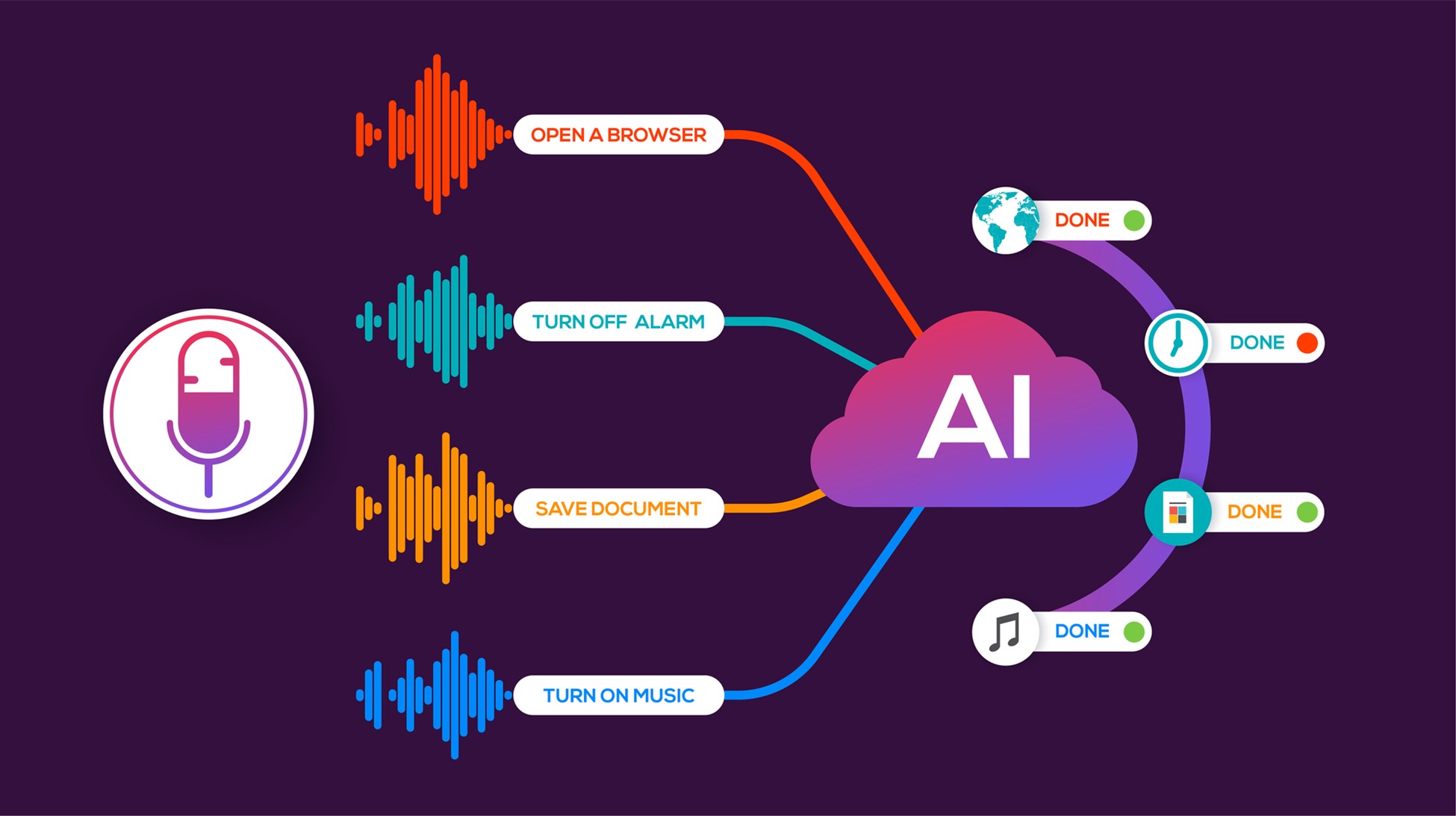
Voice Search Optimization with AI
Voice search optimization has become a critical component of local SEO strategies, particularly with the growing prevalence of voice-activated devices like smartphones, smart speakers, and virtual assistants. AI plays a pivotal role in optimizing content for voice search, ensuring businesses are visible and relevant in this increasingly popular search medium.
How AI Enhances Voice Search Optimization
- Natural Language Processing (NLP): AI employs NLP to better understand and interpret the nuances of human speech, such as the intent behind queries, local dialects, and colloquial phrases. This understanding is crucial for optimizing content for voice search, which often involves more conversational and long-tail keywords.
- User Intent Analysis: Voice searches are often intent-driven and require immediate, accurate results. AI analyzes patterns in voice search queries to discern user intent, whether it’s seeking a local business, getting directions, or finding quick answers to questions. This allows businesses to tailor their content to meet these specific needs.
-
Localization of Voice Search Queries: AI can identify and adapt to local speech patterns and search habits, ensuring that businesses appear in voice search results that are geographically relevant. For instance, a bakery in Boston can optimize its content to appear in voice searches for “best Boston cream pie near me.”
Practical Applications of AI in Voice Search
-
Optimizing for Local Queries: A local hardware store can use AI to optimize its content for common voice search queries in its area, such as “Where can I get plumbing supplies near me?” By including these phrases in their online content, they increase their chances of appearing in relevant local voice searches.
-
Enhanced Local Business Listings: AI can help businesses ensure that their local listings (like Google My Business) are optimized for voice search. This includes updating business information, hours, and services, which are often sought after in voice queries.
-
Personalized Voice Search Experiences: AI can provide more personalized responses to voice queries based on user history and preferences. For example, a restaurant could tailor its voice search results to offer recommendations based on a customer’s past orders or dietary preferences.
Benefits for Local SEO Strategies
- Increased Visibility in Voice Search: Optimizing for voice search helps businesses increase their visibility in an area where more users are turning to speak rather than type their queries.
- Enhanced User Experience: By providing quick and relevant answers to voice search queries, businesses improve the overall user experience, fostering trust and loyalty among local customers.
- Competitive Edge: Early adopters of voice search optimization can gain a competitive advantage in local markets, particularly as voice search becomes more prevalent.
The Future of AI in Voice Search Optimization
The future of voice search is intrinsically linked with advancements in AI. As AI technology becomes more sophisticated, it will provide even more accurate and localized responses to voice queries. This evolution will necessitate businesses to continuously refine and adapt their voice search optimization strategies to remain relevant and competitive in the local SEO landscape.
For more insights into the integration of AI in digital marketing and SEO, consider the following articles from Codedesign.org:
In conclusion,everaging AI for voice search optimization is not just about keeping up with technological trends; it's about staying ahead in the local SEO game. By understanding and catering to the unique characteristics of voice search, businesses can ensure they remain visible and relevant in this rapidly evolving digital space.
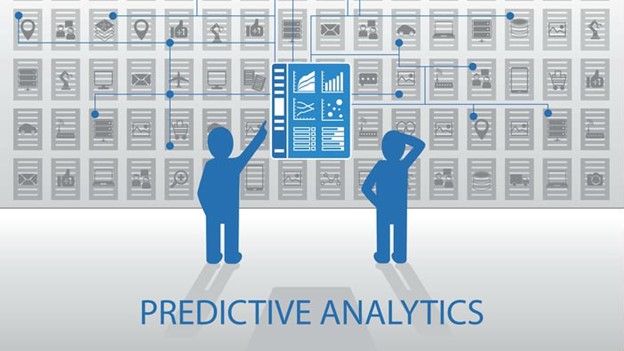
Predictive Analytics in Local SEO
Predictive analytics, powered by machine learning (ML) and artificial intelligence (AI), is reshaping how businesses approach local SEO. This technology involves analyzing historical data and current market trends to forecast future consumer behaviors, search trends, and market dynamics. This forward-looking approach allows businesses to proactively optimize their local SEO strategies.
Mechanisms of Predictive Analytics in Local SEO
- Analyzing Search Trend Patterns: Predictive analytics tools can identify patterns in how local search terms and trends evolve over time. This helps businesses anticipate future changes in consumer search behavior and preferences.
- Predicting Consumer Behavior: By analyzing data from various sources like local search queries, website traffic, and consumer interactions, AI algorithms can predict shifts in consumer interests and needs in specific localities.
-
Forecasting Market Changes: Predictive analytics can also forecast broader market changes, such as emerging local industry trends or shifts in local consumer demographics, which can impact local SEO strategies.
Real-World Applications of Predictive Analytics in Local SEO
-
Anticipating Seasonal Trends: A landscaping business could use predictive analytics to anticipate seasonal search trends in their area. By analyzing past search data, they can identify when interest in specific services (like lawn care in spring or leaf removal in autumn) begins to increase, and adjust their SEO and marketing efforts accordingly.
-
Optimizing for Upcoming Events or Changes: A local retailer could use predictive analytics to prepare for upcoming local events or demographic shifts. If data suggests an influx of tourists for an upcoming festival, the retailer could optimize their website with relevant keywords and content to attract this audience.
-
Adapting to Consumer Sentiment Shifts: A restaurant might use predictive analytics to track changes in dietary preferences in their locality, such as a growing interest in plant-based diets. This insight allows them to adjust their menu offerings and online content to align with these evolving preferences.
Benefits for Local SEO Strategies
- Proactive Optimization: Predictive analytics enables businesses to stay ahead of the curve, adapting their SEO strategies in anticipation of future trends rather than reacting to them after they've emerged.
- Targeted Content Strategy: By understanding upcoming trends, businesses can create more targeted and relevant content, improving engagement and search rankings.
- Efficient Resource Allocation: Predictive insights allow businesses to allocate their marketing resources more effectively, focusing on areas with the highest potential return on investment.
The Future of Predictive Analytics in Local SEO
The future of predictive analytics in local SEO is bright. As the accuracy and capabilities of AI and ML technologies improve, the insights derived from predictive analytics will become even more precise and actionable. This advancement will enable businesses to not only anticipate future trends and consumer behaviors but also to dynamically adapt their SEO strategies in real-time, staying ahead in the highly competitive local search landscape.
For additional insights into the role of advanced technologies in digital marketing, the following resources from Codedesign.org are highly recommended:
- Predictive Analytics in Digital Marketing
- Advanced SEO at Codedesign
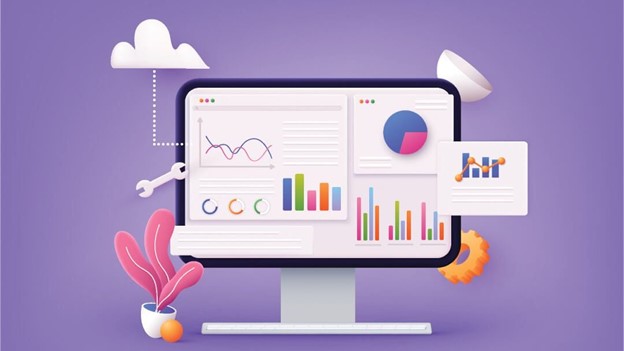
How AI Enhances Automated SEO Audits
-
Comprehensive Site Analysis: AI tools can perform in-depth analyses of a website, scrutinizing factors like on-page content, site structure, mobile responsiveness, and local keyword optimization. This thorough examination helps pinpoint areas needing improvement.
-
Local Keyword Performance Tracking: AI-driven audits can track the performance of local keywords, providing insights into which terms are driving traffic and which are underperforming. This information is critical for refining keyword strategies to target local audiences more effectively.
-
User Experience (UX) Optimization: AI algorithms can evaluate a website’s user experience, identifying issues like slow load times or navigation difficulties. Improving these aspects is vital for local SEO, as a positive UX is a key ranking factor for search engines.
-
Competitive Analysis: Automated tools can also analyze competitors’ websites, offering insights into their SEO strategies. Understanding what competitors are doing well or poorly can inform more effective local SEO tactics.
-
Optimizing Local Business Listings: For a small business, an automated SEO audit could identify inconsistencies in local business listings across various platforms, such as Google My Business and Yelp. The AI tool can recommend corrections to ensure uniformity and accuracy, which is crucial for local SEO.
-
Enhancing Local Content: For a regional healthcare provider, an audit might reveal gaps in content relevant to local audiences. The AI can suggest topics or keywords to focus on, like specific health concerns prevalent in the area.
-
Improving Site Accessibility: For a local retail store, an AI audit might highlight accessibility issues on their website. The tool can provide recommendations for making the site more accessible to all users, which is beneficial for both UX and SEO.

AI in Local SEO Competitor Analysis
In the realm of local SEO, understanding your competition is as crucial as optimizing your own digital presence. Artificial Intelligence (AI) significantly enhances the process of competitor analysis, providing businesses with deep insights into their rivals' strategies, strengths, and weaknesses. This AI-driven approach allows for more strategic planning and execution of local SEO efforts.
How AI Transforms Competitor Analysis in Local SEO
-
Detailed Competitor Profiling: AI algorithms can analyze vast amounts of data from competitors’ websites, social media profiles, and online reviews. This analysis helps in creating detailed profiles of competitors, understanding their market positioning, and identifying their SEO strategies.
-
Performance Benchmarking: AI tools can compare a business's local SEO performance with that of its competitors. This benchmarking covers various aspects like keyword rankings, content quality, backlink profiles, and local listing optimization.
-
Sentiment Analysis: Using NLP (Natural Language Processing), AI can assess customer sentiments expressed in reviews and social media about competitors. This information is invaluable for understanding competitors' reputation and areas where your business could differentiate itself.
-
Identifying SEO Gaps and Opportunities: By analyzing competitors’ local SEO strategies, AI can highlight gaps in their approaches, presenting opportunities for your business to capitalize on. This might include underutilized local keywords, content gaps, or unaddressed customer segments.
Practical Applications of AI in Local SEO Competitor Analysis
-
Optimizing for Neglected Keywords: A local fitness center could use AI to identify fitness-related keywords that local competitors are not ranking for. By optimizing its content for these keywords, the center can capture additional market share.
-
Content Strategy Development: A regional law firm might use AI to analyze the content strategies of competing firms. Insights into topics covered, content formats used, and engagement levels can inform a more effective content strategy for their own website and social media.
-
Reputation Management: A local restaurant could use AI to perform sentiment analysis on competitors’ customer reviews. Understanding the strengths and weaknesses in competitors’ customer experiences can help the restaurant improve its own services and marketing messaging.
Benefits for Local SEO Strategies
- Strategic Edge: AI-driven competitor analysis offers a strategic advantage, helping businesses understand the local SEO landscape and positioning themselves effectively.
- Informed Decision Making: The insights provided by AI empower businesses to make data-driven decisions about their local SEO strategies.
- Targeted Improvements: AI helps identify specific areas where a business can improve its local SEO efforts to outperform competitors.
The Future of AI in Local SEO Competitor Analysis
The future of AI in local SEO competitor analysis promises even more precision and depth. As AI technologies evolve, they will be capable of providing real-time competitive insights and more nuanced understanding of local market dynamics. This ongoing evolution will enable businesses to swiftly adapt their strategies and maintain a competitive edge in their local markets.
Further Reading
For more insights into AI's role in digital marketing and competitive analysis, these articles from Codedesign.org are recommended our digital marketing trends and thoughts.
Integrating AI and ML into local SEO strategies represents a significant shift in how businesses approach online visibility. AI's ability to process large volumes of data rapidly enables businesses to gain deeper insights into local search trends and user behaviors. This leads to more targeted and effective SEO strategies that resonate with the local audience. AI can automate repetitive tasks, allowing businesses to focus on creative and strategic aspects of SEO. The predictive power of AI and ML also means businesses can anticipate changes in search algorithms and user preferences, staying ahead of the curve.

Reach out to our SEO experts
Codedesign is a renowned digital marketing agency that excels in local SEO, offering tailored solutions to businesses seeking to enhance their online visibility and dominance in local search results. Our expertise in local SEO is underpinned by a deep understanding of the nuances of local search algorithms, consumer behavior, and market trends.
What sets Codedesign apart is our data-driven approach, combined with innovative use of AI and machine learning technologies. We specialize in crafting bespoke local SEO strategies that are not only aligned with your business goals but also resonate with your local audience. Our services range from in-depth local market analysis, personalized content strategies, and optimization of local business listings, to advanced competitor analysis and predictive analytics for future-proofing your SEO efforts.
Our team of experts harnesses the latest tools and technologies to ensure your business stays ahead of the curve in the ever-evolving digital landscape. We provide comprehensive SEO audits, actionable insights, and continuous performance monitoring to ensure your business not only climbs but also maintains its rankings in local search results.
Codedesign is committed to delivering measurable results. We focus on increasing your local online visibility, driving more foot traffic to your physical locations, and ultimately boosting your bottom line. With our expertise, your business can achieve a prominent local digital presence, connect more effectively with your target audience, and outperform competitors in your local market.
Ready to elevate your local SEO and transform your digital presence? Connect with Codedesign, your local SEO experts, and let's discuss how we can tailor a strategy that fits your unique business needs. Visit our contact page to get started.
FAQs - Frequently Asked Questions
What are the key steps to improve my local SEO?
Improving local SEO involves a comprehensive strategy aimed at making your business more visible in local search results. Firstly, ensure your Google My Business (GMB) profile is claimed, fully filled out, and regularly updated; this is a critical component. Incorporating local keywords into your website's content, metadata, and URLs is essential. For instance, if you're a Lisbon-based digital agency like Codedesign, you'd want to include phrases such as "digital marketing services in Lisbon" throughout your site. Additionally, obtaining reviews from satisfied customers plays a significant role in enhancing your local SEO, as does creating location-specific pages if your business operates in multiple areas. Consistent NAP (Name, Address, Phone number) information across your online presence, including directories and social media, is crucial for trust and accuracy. Lastly, engaging in local link-building by partnering with local businesses and participating in community events can significantly boost your local SEO efforts.
How can I track my local SEO rankings effectively?
Tracking local SEO rankings effectively requires utilizing specialized tools that provide insights into your performance in local search results. Tools like Google's Search Console offer a starting point by showing how your site performs in search queries. For more localized tracking, tools such as Moz Local, SEMrush, and BrightLocal allow you to monitor rankings for specific keywords in targeted locations. These tools can also help track your visibility in Google's local pack, monitor competitors, and analyze search trends. Regular monitoring and analysis can inform your strategy, enabling adjustments to enhance visibility and rankings. Codedesign, for example, leverages advanced analytics to refine its clients' local SEO strategies, ensuring they remain competitive in their specific markets.
What strategies can I use for effective keyword research in local SEO?
Effective keyword research in local SEO involves identifying the terms and phrases that potential customers are using to find services or products in your area. Start by thinking from your customer's perspective and consider the local vernacular and regional terms that might be used. Utilize tools like Google Keyword Planner, SEMrush, and Ahrefs to uncover search volume and competition levels for local keywords. Incorporating local landmarks, neighborhood names, and 'near me' searches can also uncover valuable opportunities. Analyzing competitors’ websites and their keyword strategy can provide insights into what works well in your industry. Codedesign often employs a mix of these strategies to identify high-impact local keywords for clients, integrating them into content, metadata, and PPC campaigns for enhanced local visibility.
How can I create localized content that resonates with my audience?
Creating localized content that resonates with your audience requires a deep understanding of their preferences, needs, and cultural nuances. Start by researching local trends, events, and news to generate content ideas that are relevant and engaging. Personalizing content to reflect local experiences and landmarks can significantly increase its relatability. Use local language or slang judiciously to appeal to the local audience without alienating broader visitors. Encourage user-generated content, such as reviews and testimonials from local customers, to enhance authenticity. For businesses like Codedesign, creating case studies or success stories of local clients can demonstrate your impact in the community. Engagement can be further increased through interactive content like local polls, quizzes, and social media engagement that taps into local culture and interests.
Why are online reviews important for local SEO, and how can I manage them?
Online reviews are a cornerstone of local SEO as they influence your business's visibility in search results and affect consumer trust. Reviews contribute to your business's credibility, with a significant percentage of consumers trusting online reviews as much as personal recommendations. Google's algorithm also considers the quantity, quality, and recency of reviews when ranking businesses in local search results. To manage them effectively, actively encourage satisfied customers to leave positive reviews on your Google My Business profile and other relevant platforms. Respond promptly and professionally to all reviews, addressing any concerns raised by dissatisfied customers to demonstrate your commitment to customer satisfaction. Tools like ReviewTrackers or BrightLocal can help monitor and manage reviews across multiple platforms. For Codedesign and its clients, strategic management of online reviews has been pivotal in improving local search rankings and building a trustworthy online presence.
What is local link building, and why is it important?
Local link building is the process of acquiring backlinks from reputable local websites to your own, enhancing your site's authority and relevance in local search results. This practice is vital because search engines, like Google, use backlinks as a key ranking factor, interpreting each link as a vote of confidence in your content's quality and relevance. For local businesses, securing links from local news outlets, community websites, and industry-specific local directories can signal to search engines that your business is an integral part of the local community. This not only improves your visibility in local search results but also drives local traffic to your site. Collaborating with local businesses on promotions, events, or content can also generate natural backlinks. Codedesign has successfully implemented local link-building strategies for its clients, significantly boosting their local SEO performance.
How does mobile optimization affect local SEO?
Mobile optimization is crucial for local SEO as a significant portion of local searches are conducted on mobile devices, with users often seeking immediate information or services. Google’s mobile-first indexing means the mobile version of your website is the benchmark for how Google indexes and ranks your site. A mobile-optimized site provides a better user experience, with fast loading times, responsive design, and easy navigation, which are factors Google considers when ranking sites. Moreover, features like click-to-call buttons or easy access to maps and directions can significantly enhance the user experience for local searchers. Implementing AMP (Accelerated Mobile Pages) can further improve loading times on mobile. For businesses like those Codedesign works with, prioritizing mobile optimization has led to improved search rankings, increased traffic, and higher conversion rates from local search queries.
Can AI and machine learning enhance my local SEO strategy?
Yes, AI and machine learning can significantly enhance your local SEO strategy by providing deeper insights, automating tasks, and personalizing user experiences. AI tools can analyze large volumes of data to identify trends, preferences, and patterns in user behavior, enabling more targeted and effective local SEO strategies. For example, AI can optimize your website's content for local search by identifying the most impactful keywords and phrases based on search intent. Machine learning algorithms can also personalize content and recommendations for users based on their location and previous interactions with your site, improving engagement and conversion rates. Furthermore, AI-powered chatbots can improve local customer service by providing instant responses to inquiries, which is beneficial for both user experience and SEO. Codedesign leverages AI and machine learning technologies to refine and automate its clients' SEO efforts, achieving superior results in local search rankings.
How can I optimize my content for voice search to improve my local SEO?
Optimizing content for voice search is increasingly important for local SEO as more people use voice-activated devices for searching. To adapt, focus on natural language and conversational keywords that match how people speak rather than type. Questions often start with "Who," "What," "Where," "When," "Why," and "How," so including these in your content can improve visibility in voice search results. Additionally, optimizing for local phrases and including structured data markup can help search engines understand the context of your content, making it more likely to appear in voice searches. Ensuring your Google My Business listing is complete and up-to-date also helps with voice search, as many voice searches are location-based. Businesses like Codedesign optimize content for voice search by focusing on these elements, enhancing their visibility in local search and catering to the growing number of users who rely on voice-activated assistants.
What is predictive analytics, and how can it benefit my local SEO efforts?
Predictive analytics refers to the use of data, statistical algorithms, and machine learning techniques to identify the likelihood of future outcomes based on historical data. In the context of local SEO, predictive analytics can forecast trends, user behaviors, and potential market shifts, enabling businesses to adjust their strategies proactively. For instance, it can predict which local keywords will become more popular, allowing you to optimize your content ahead of the competition. Predictive analytics can also identify which areas of your website need improvement to enhance user experience or which type of content generates the most engagement from local audiences. By understanding customer behavior patterns, businesses can tailor their SEO strategies to target the most profitable customer segments or geographic areas. Codedesign uses predictive analytics to inform its local SEO strategies, ensuring that its clients are always ahead of market trends and positioned to capture emerging opportunities.
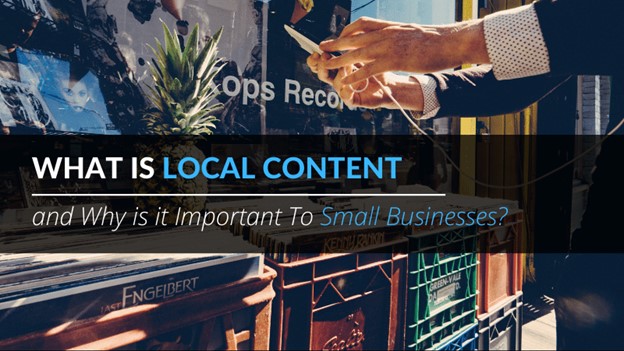


Add comment ×